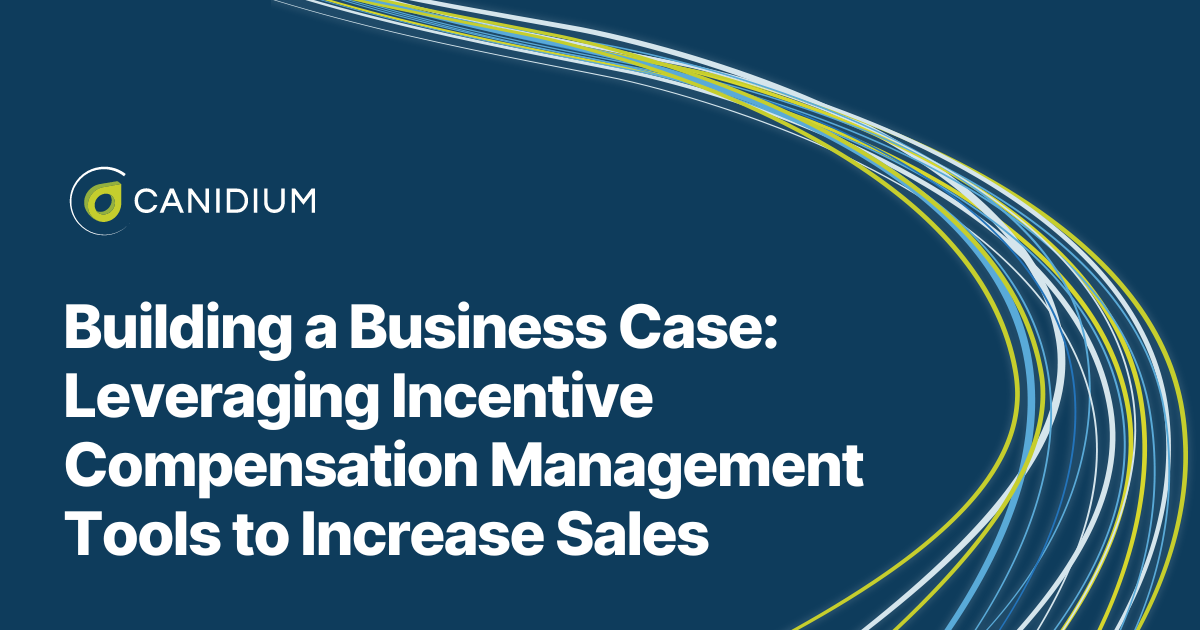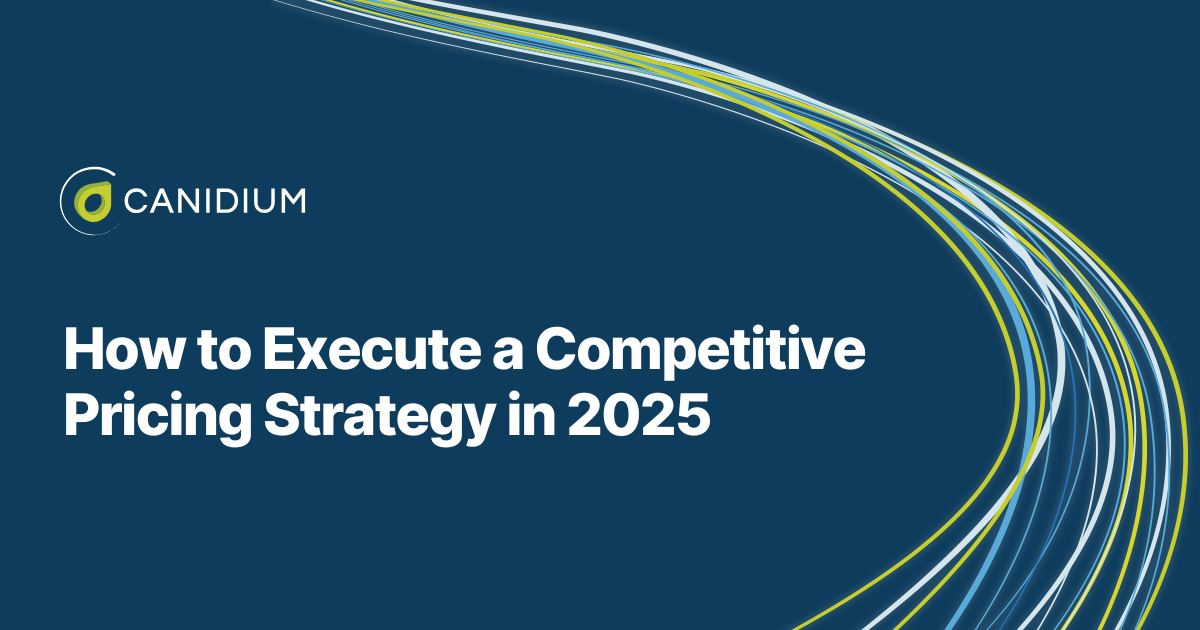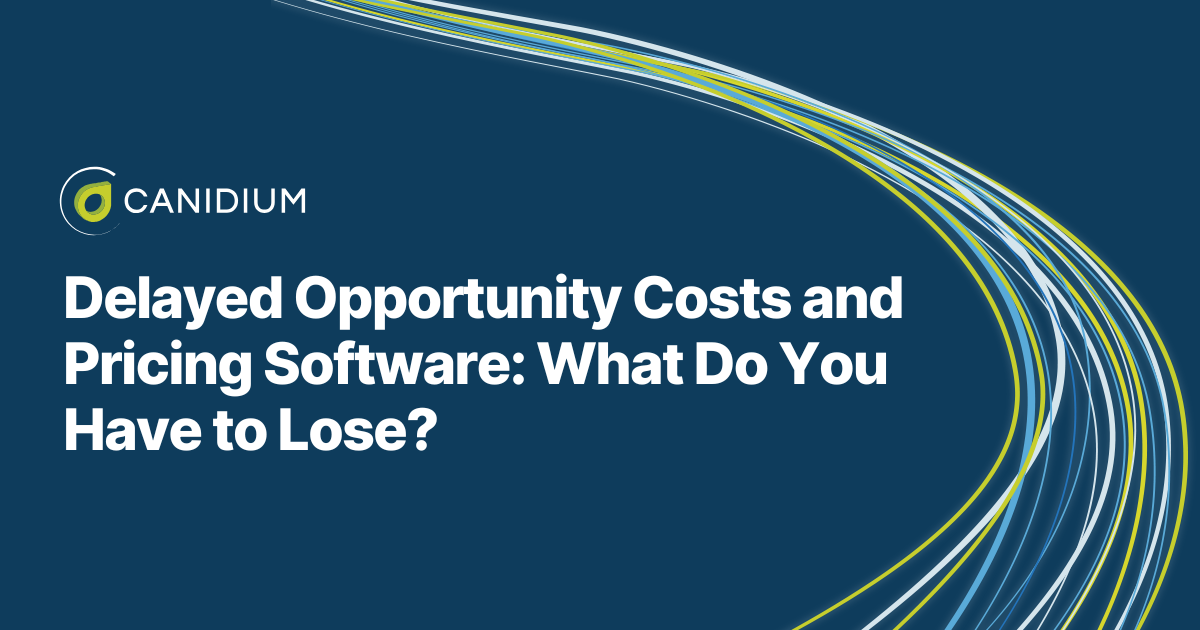Strategically leveraging compensation structures and incentives to increase your company's sales is not a new idea. However, how companies execute these initiatives and their subsequent results are. Organizations with incentive compensation management tools drive significantly better sales outcomes than companies can otherwise achieve. Thus, to stay ahead in competitive markets, adopting incentive compensation management tools is vital.
Our specialized teams at Canidium design, configure, and integrate partner incentive compensation solutions for clients across industries. We educate companies on unique compensation strategies, the tools to initiate them, and the investment process.
To help you determine if incentive compensation management tools are right for your organization, this article covers what incentive compensation solutions are and the functions they serve for businesses.
- What are incentive compensation management tools?
- 5 ways to increase sales with incentive compensation management tools
What Are Incentive Compensation Management Tools?
Incentive Compensation Management (ICM) tools are software solutions designed to automate and manage the administration and optimization of incentive compensation plans for sales teams and other employees.
.png?width=1920&height=1080&name=Agenda%20(1).png)
ICM tools leverage multiple features and functions to fulfill their core function. For example, plan design tools allow comp admins to create complex commissions and incentives to motivate sales teams. They also provide real-time insights into the effectiveness of compensation plans and employee performance by integrating with other company systems like CRMs or ERPs. Features like real-time analytics and reporting aid in strategic decision-making, while process automation enhances compliance risk mitigation.
Ultimately, ICM tools allow companies to reduce their administrative workload while simultaneously increasing sales team performance.
5 Ways to Increase Sales With Incentive Compensation Management Tools
The point of incentive compensation management solutions is to increase sales while also easing the administrative burden of managing commissions. The concept is simple, but executing this goal leverages an extensive array of advanced tools and features.
You will need to understand how incentive compensation management tools are used in greater detail to better understand their function and why they are becoming vital to successful sales initiatives.

1. Clarify Complex Compensation Plans
Incentives only work if they are straightforward to your sales team. However, Gartner found that only 24% of sellers can easily calculate their total variable compensation, meaning there is a significant gap in many company's compensation management systems. The clarity of your user interface has a notable impact on your sales team system adoption rates. The easier it is to navigate, understand, and fully leverage your incentive compensation system, the more your sales teams will use the tool to determine their potential commissions. This gives them a better understanding of how they can work within the incentive structures you have strategically created to maximize their pay, an effort which, in turn, maximizes your revenue.
Implementing incentive compensation management software enables sales team members to quickly make sense of complex compensation structures, reducing confusion surrounding their pay and increasing their motivation to follow your sales performance incentives. Advanced incentive solutions include features like real-time payment and performance insights, commission estimates, and leaderboards. These tools provide immediate feedback to sales personnel about their earnings and standings, continuously motivating them to improve their performance.
2. Reduce Payroll Errors and Financial Losses with Incentive Compensation Management Software
The average payroll error costs companies $291 to rectify. At scale, this figure amounts to a notable cost, encompassing financial loss and degraded trust between sales reps and your administrative processes. Thus, you can reduce annual operations costs by reducing payroll errors with incentive compensation management tools. Built-in automation capabilities manage the granular and repetitive compensation processes with preternatural accuracy and consistency, eliminating costly human errors while also increasing efficiency within the admin department.
At the same time, advanced incentive compensation management tools can prevent other unnecessary costs, such as incidental losses, by allowing you to craft more complex, targeted, and effective sales compensation plans to mitigate risks and incentivize behaviors.
3. Reduce Manual Processes With an Automated Compensation Platform
Without automation, your compensation administrators' workday is bogged down with time-consuming manual tasks that prevent them from focusing on higher-order strategic initiatives that could drive revenue. They are stuck managing spreadsheets when they could be analyzing performance metrics and optimizing compensation plans.
Solutions like SAP SuccessFactors Incentive Management (SFIM) solve manual processes through automated compensation management capabilities. More specifically, the tool leverages the following features to increase productivity:
.png?width=1920&height=1080&name=Agenda%20(2).png)
- Automated Plan Management: The system allows for designing, modeling, and optimizing complex sales plans. Users can leverage intuitive drag-and-drop interfaces and preconfigured templates to create and modify compensation plans. This reduces the reliance on IT for changes and updates, thereby speeding up the process and reducing manual input.
- Real-Time Insights and Performance Monitoring: The platform provides real-time payment and performance insights, enabling immediate access to critical data that can influence decision-making. This feature minimizes the need for manual data compilation and analysis, allowing sales teams and managers to focus more on strategy and less on administrative tasks.
- Mobile Accessibility: With the mobile app option, sales representatives and managers can access information and perform tasks on the go. This capability ensures that they are not tied to a desktop and can manage, view, and respond to compensation-related issues from anywhere, thus reducing delays and increasing efficiency.
- AI-Driven Recommendations: The system uses artificial intelligence to offer prescriptive recommendations for optimizing compensation plans. This feature helps refine plans without the extensive manual analysis typically required, relying instead on AI to suggest the most effective adjustments.
- Dispute Resolution and Traceability: SAP SuccessFactors provides tools for one-click traceability to address compensation inquiries, resolve disputes, and eliminate overpayments quickly. This significantly reduces the time and effort involved in handling disputes manually.
- Enhanced Data Management: The dashboard and analytics tools enable users to develop, test, and roll out new incentive schemes swiftly while providing a holistic view of the sales performance. This centralized data management system reduces the complexity and manual effort involved in managing multiple data sources.
4. Make More Informed Decisions With Enhanced Reporting Capabilities and Real-Time Insights
Without data analytics and reporting, your decision-making process is based on guesswork. Even the most experienced and knowledgeable leadership team cannot guide strategy effectively without the granular insight hidden in a company's data.
Tools like SFIM leverage advanced reporting features and real-time insights into sales performance and compensation data to enhance your decision-making capabilities. The platform's comprehensive reporting tools allow users to analyze and visualize sales data effectively, helping to identify trends, forecast outcomes, and make strategic decisions based on accurate, up-to-date information. Additionally, real-time data availability makes it possible to quickly see the impact of incentive plans and make necessary adjustments. This timely access to data allows you to respond more rapidly to market or operational changes.
5. Leverage Incentives to Improve Sales Performance
Targeted revisions of compensation structures have a 50% higher impact on sales performance than adjusting advertising investments. The concept is simple: the more motivated your sales team is, the more revenue your company will generate. However, many companies find it hard to successfully execute compensation planning and incentive initiatives that drive team members to close more deals.
Incentive compensation tools eliminate the gap between incentive compensation strategy and execution by seamlessly handling the daily management of admin processes. The tool allows companies to design, model, and optimize complex incentive compensation plans tailored to encourage desired sales behaviors. This strategic planning capability enables businesses to set up structures that directly align with their goals, such as increasing revenue or enhancing market penetration.
At the same time, by automating the administrative aspects of compensation management, the tool reduces the burden of manual processes and eliminates errors. This automation ensures that sales teams are paid accurately and on time, maintaining high motivation levels and focusing sales efforts on closing deals.
Practicing Better Incentive Compensation Management With The Right Tool
The bottom line is that incentive compensation management tools can significantly enhance your team's sales performance by streamlining complex compensation strategies' creation, implementation, and management. These tools offer a user-friendly interface that demystifies compensation plans for sales teams. At the same time, by automating calculations, ICM tools reduce payroll errors and financial losses.
Your ICM solution's automation can relieve administrative burdens, allowing compensation managers to focus on strategic initiatives that drive sales and revenue growth. Additionally, tools like SFIM provide real-time insights and advanced reporting capabilities, enabling data-driven decision-making that allows you to rapidly adjust sales strategies in response to market shifts or performance insights.
You can strategically use these tools to design and adjust compensation structures, which directly impact sales behaviors and lead to a marked increase in performance and revenue. However, you will first need to successfully implement an ICM solution. To learn more about navigating an SFIM implementation, including pricing, start with this buyer's guide.








